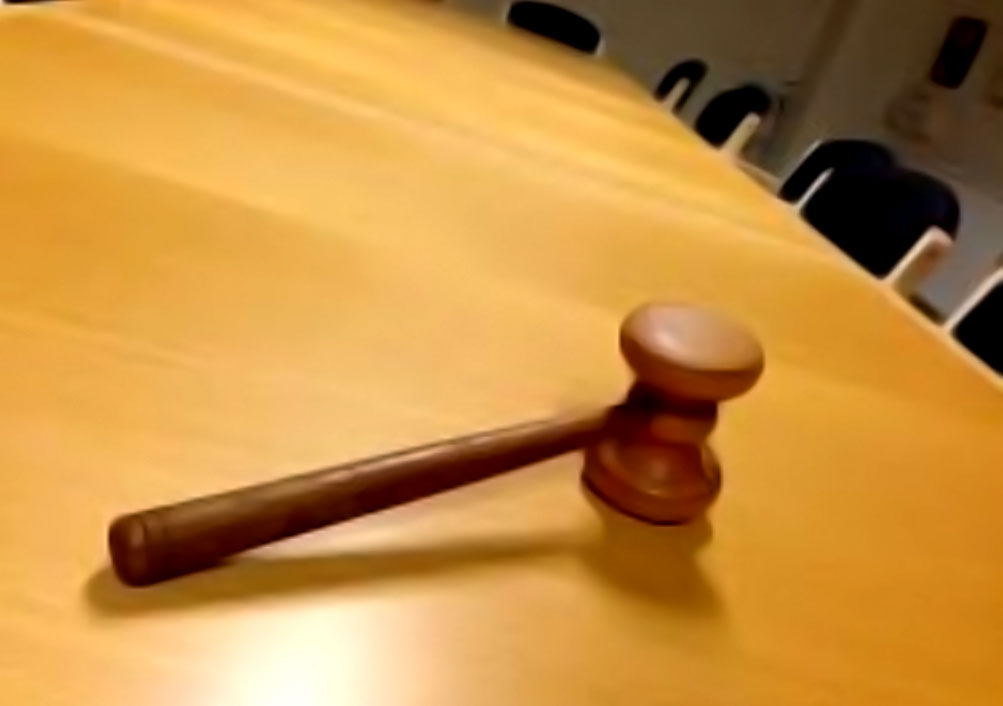Apex Court says time period extended through its suo-motu orders dated Sep 23, 2021 merits exclusion while computing limitation for filing written statement and even in cases where delay is otherwise not condonable

Read Judgment: Prakash Corporates V. Dee Vee Projects Limited
Pankaj Bajpai
New Delhi, February 16, 2022: While hearing an appeal questioning the orders so passed by the Trial Court and the High Court in dismissing the petition as time barred due to non-submission of written statement within statutory limitation period in view of the challenges faced by the litigants owing to COVID-19 pandemic, the Supreme Court has clarified that the period envisaged finally in its order dated September 23, 2021 is required to be excluded in computing the period of limitation even for filing the written statement and even in cases where the delay is otherwise not condonable.
A Division Bench of Justice Dinesh Maheshwari and Justice Vikram Nath observed that if the prescribed period for any suit/appeal/application expires on day when the Court is considered ‘closed’, such proceedings may be instituted on the re-opening day, and hence, any proposition, which suggests that during such non-regular-business days of the Trial Court, and rather bleak days for the humanity, the written statement ought to have been filed, could only be disapproved as being impractical and rather preposterous.
The observation came pursuant to an appeal challenging the order, whereby the Chhattisgarh High Court (Bilaspur Bench) had upheld the order passed by the Commercial District Court, Nava Raipur, in declining the prayer of Prakash Corporates (Appellant) for granting further time to file its written statement. By the said order, the prayer of Appellant came to be declined on the ground that in view of the proviso to Order VIII Rule 1 of CPC, 1908, such a right of the Appellant to file the written statement stood forfeited with expiry of 120 days from the date of service of summons.
The litigation in question, pertains to the monetary liabilities arising from and under the sub-contracts awarded to the appellant. The appellant sent a demand notice to Dee Vee Projects (Respondent) in terms of the Insolvency and Bankruptcy Code, 2016 (IBC), demanding payment of an alleged unpaid operational debt of Rs. 17,94,11,835/-. The respondent however, denied the claim and conversely made a claim of Rs. 3,73,24,821/- against the appellant on account of excess payment.
The appellant thereafter approached the National Company Law Tribunal (NCLT) seeking initiation of corporate insolvency resolution process against the respondent u/s 9 of IBC with the allegations that the respondent (corporate debtor) had failed to make payment of its unpaid operational debt. On the other hand, the respondent instituted the suit against the appellant for recovery of the said sum of Rs.3,73,24,821/- along with interest @ 12% p.a., allegedly being the excess payment made to the appellant. The respondent also filed an application under Order XXXVIII Rule 5 r/w/s 151 CPC, seeking interim directions of attachment before judgment. The petition was however dismissed by the High Court observing that no written statement had been filed.
After considering the submissions, the Top Court found that in its consciously worded order dated March 23, 2020, this Court, while taking note of the difficulties likely to be faced by the litigants in filing their petitions/applications/suits/appeals/proceedings within the period of limitation, ordered that the period of limitation in all such proceedings, irrespective of the limitation prescribed under general or special laws, whether condonable or not, shall stand extended w.e.f March 15, 2020 until further orders.
Even if the referred provisions of CPC had not been stated in specific terms, the general mandate of the order was to extend the period of limitation provided in any law for the time being in force, irrespective whether the same was condonable or not w.e.f March 15, 2020 and until further orders, added the Court.
Speaking for the Bench, Justice Maheshwari clarified that the directions issued by this Court was clearly to obviate the hardships likely to be suffered by the litigants during the onslaughts of this pandemic, and hence, the legal effect and coverage of such direction couldnot be unnecessarily narrowed.
As per the Limitation Act, 1963, when a particular period is to be excluded in relation to any suit or proceeding, essentially the reason is that such a period is accepted by law to be the one not referable to any indolence on the part of the litigant, but being relatable to either the force of circumstances or other requirements of law, added the Bench.
Justice Maheshwari went on to observe that the applicability of the special & extraordinary measures taken by this Court in exercise of Article 142 of the Constitution for advancing the cause of justice in the wake of challenges thrown by the pandemic cannot be denied in relation to the period prescribed for filing the written statement, and hence, the time limit for filing written statement in relation to the suit does not come to an end on May 6, 2021.
When the Trial Court considered the step of filing the written statement to be of importance in view of the time limit and consequences stated in the statute, there was no justification that the Trial Court did not simultaneously take up the application u/s 10 CPC for consideration, added the Bench.
Accordingly, the Apex Court concluded that the written statement already prepared and notarized by the appellant deserved to be taken on record and the Trial Court deserved to be directed to proceed with the matter in accordance with law thereafter; and for that matter, to deal with the pending applications without further delay.
Sign up for our weekly newsletter to stay up to date on our product, events featured blog, special offer and all of the exciting things that take place here at Legitquest.




Add a Comment